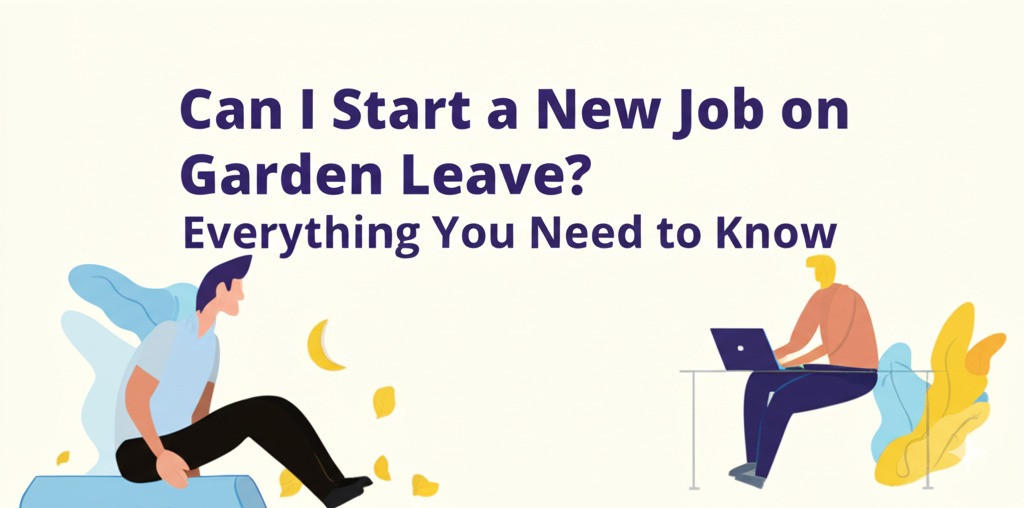
Thinking about jumping into your next job while on garden leave? It’s a tempting thought—after all, who wants to sit around when a fresh opportunity is waiting? But before you dive in, it’s crucial to understand the legal, contractual, and practical implications of starting a new job while on garden leave.
In this article, we’ll break down what garden leave really means, whether you can legally start a new role during it, and what potential risks and exceptions exist. Let’s clear the fog and get you ready to make a smart, informed move.
What Is Garden Leave?
Garden leave (also known as gardening leave) is a period where an employee is still under contract with their current employer but is not required to attend work or perform duties. This often happens when an employee has resigned or been terminated and the employer wants to keep them out of the business during their notice period.
Why Do Employers Use Garden Leave?
Employers may place employees on garden leave to:
- Protect sensitive company information
- Prevent access to clients or internal systems
- Maintain team stability
- Restrict immediate access to competitors
During garden leave, you’re still on payroll and must abide by all contractual obligations, including non-compete and confidentiality clauses.
Can You Legally Start a New Job While on Garden Leave?
The Short Answer: Usually No
In most cases, you cannot legally start a new job while on garden leave—especially if your current employment contract restricts it. You’re still technically employed, even if you’re not working day-to-day. This means you owe a duty of loyalty to your current employer until your notice period ends.
Check Your Employment Contract
The most important step is to review your employment contract. Look for clauses related to:
- Restrictive covenants
- Non-compete agreements
- Garden leave terms
If the contract expressly prohibits working elsewhere during garden leave, starting a new job could put you in breach of contract.
What Happens If You Start a New Job Anyway?
Starting a new job while still on garden leave without permission can lead to serious consequences, such as:
- Breach of contract claims
- Loss of final pay or benefits
- Legal action from your current employer
- Damaged professional reputation
Even if your new employer is eager to have you onboard, they may also face legal pressure if they knowingly allow you to breach your contract.
Are There Any Exceptions?
Consent from Your Current Employer
If you’re hoping to start your new job early, your best option is to negotiate a release from your garden leave. Employers will sometimes agree to an early termination of your notice period, particularly if:
- They’ve already found your replacement
- You pose no risk to the business
- They want to cut payroll costs
Payment in Lieu of Notice (PILON)
Sometimes employers opt for payment in lieu of notice, where they pay you a lump sum and end your employment immediately. Once this happens, you’re free to start your new job.
How Long Does Garden Leave Last?
Garden leave typically lasts the same duration as your contractual notice period, which can range from a few weeks to several months. Some senior positions may have longer notice periods due to the strategic nature of the role.
During this time, you must:
- Stay available for consultation (if required)
- Not work for another company
- Follow all company policies and restrictions
Tips for Navigating Garden Leave
Here are some smart ways to use your garden leave productively without breaching your contract:
- Negotiate early release with your employer
- Focus on upskilling through online courses or certifications
- Work on your personal brand (LinkedIn, resume updates)
- Plan your transition to the new role, including travel, relocation, or onboarding prep
- Respect all contractual obligations to maintain good relations and avoid legal trouble
Final Thoughts: Don’t Jump the Gun
While garden leave might feel like a convenient break before your next role, starting a new job too soon can backfire. Always:
- Check your contract
- Understand your obligations
- Seek legal advice if unsure
- Get employer consent if possible
Your next career move should be exciting, not legally risky. Play it smart, stay compliant, and make a smooth, confident transition into your next chapter.

Andre Cuevas provides career insights, job search strategies, and professional advice to help individuals navigate the job market and achieve their career goals.





